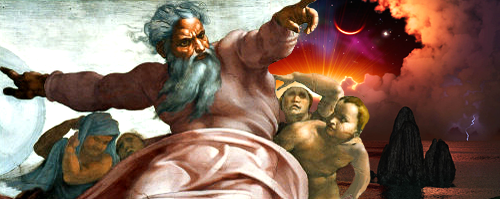
A UNIVERSE MADE FOR US?
The universe contains far more galaxies than we can imagine — at least 100-billion and quite possibly far more. How big are those numbers? Let’s put this into some perspective. If you counted galaxies at the rate of one per second for 24-hours, it would take almost 32-years for you to reach the number 1-billion. And, if you lived long enough (and certainly you won’t), you would spend almost 3,200-years to reach 100-billion. Again, that is only the estimated number of galaxies in the universe.
When we consider the number of individual stars and planets making up all these galaxies, the mind reels. The average Milky Way-sized galaxy is thought to con tain 200-billion stars and untold numbers of planets. Such amazing numbers quickly outgrow our limited comprehension and imagination.
Yet, who created the universe? Did it just pop out a window from nowhere as some believe? Scientists have come to a conclusion that the universe was not eternal; it had a beginning. If the universe came into being at a precise, specific time, then something or someone must have caused it to come into being. For now, how that all happened still remains a mystery to most, if not all.
Watch The Video
Even without the ‘Big Bang’ model, scientific laws of thermodynamics still de mand that the universe requires a beginning. The first law states that the amount of mass-energy in the universe is constant. The second law states that the amount of energy available for work is running out. Taken together, these laws require that the universe must have a beginning with much of its usable energy now running down. In any case, the vast majority of scientists now accept a uni verse of finite age. It will end.
NO BLIND FORCES AT WORK
What about our Earth? Sir Fred Hoyle – the renowned British astrophysicist and mathematician, after examining the different settings that regulate our planet and the rest of the universe pondered that: “A common sense interpretation of the facts suggests that a super intellect has monkeyed with the physics, as well as the chemistry and biology of the universe, and that there are no blind forces worth speaking about in nature. The numbers one calculates from the facts seem to me so overwhelming as to put this conclusion almost beyond question.”
Our universe works like a giant watch, vast in scale and complexity yet precise in its mechanics. Several decades of space exploration have revealed to us the precision of the universe. It is because of this predictability that NASA can rely on split-second timing when launching men into space sending spacecraft to explore other planetary systems so inconceivably far away that it sometimes takes hundreds, thousands and even millions of years to reach them travelling at the speeds of light.
Human beings have always been awestruck by the subtlety, majesty, and intri cate organisation of our own physical world. The march of the heavenly bodies across the sky, the rhythms of the seasons, the pattern of a snowflake, and the myriads of living creatures so well adapted to their environment — all these things seem too well-arranged to be a mindless accident arising randomly from nowhere.
TO WONDER IN AWE
The magnificent splendour of the night sky still moves us to wonder in awe. What are those tiny specks of light sparkling in the distant darkness and void of space above us? How did they get there? Why are they there? Why are we here? What lies beyond them in the unimaginable reaches of the universe?
The grandeur of the shimmering heavens raises questions not just about the universe itself but also, our part in it. The same is true of the intricate patterns in all things on Earth, not just the world we see around us but the unseen world we can explore only through the magnifying power electron microscopes.
In the last 30-odd years, scientific discoveries have undermined the idea – once popular among some scientists and scholars, that we live on an unexceptional planet. But as scientific discoveries continue to accumulate and shed more light, our planet is turning out to be not just a backwater region but rather — a very privileged planet indeed.
Instead of a universe once thought to be possibly teeming with life, more and more scientists are now realising the rare qualities of our terrestrial abode. So many factors have to be just precisely right to duplicate the feats of our amazing Earth provide to sustain us that hope is now diminishing of ever finding intelli gent life on other planets.
So, if we are alone in this vast universe, ask yourself, why is that so?
continue …

 During the Spanish
During the Spanish































Wow, what can I say. This is just awesome! Your 4-part series makes me rethink my own personal views about the existence of God. You’ve managed to raise quite a number of valid points and ones I’ve never even considered before until now. This article is certainly deep, well-thought out and written in a style that’s hard to argue against. Thank you for posting it.
Yes, thank you. And we particularly like the author’s use of the phrase, “If you believe instead in a faith which promises everything in death and nothing in life, then think again”. That’s really thought-provoking for believers of monolithic religions like Roman Catholicism, Buddhism, Hinduism, Islam, Zoroastroanism and the like. We suspect a lot of arguments will arise from just that one statement alone. Even then, the author has made a solid case for it especially if you carefully read through all four parts of the article leading to it at the very end of its closing. It’s quite a tour de force.